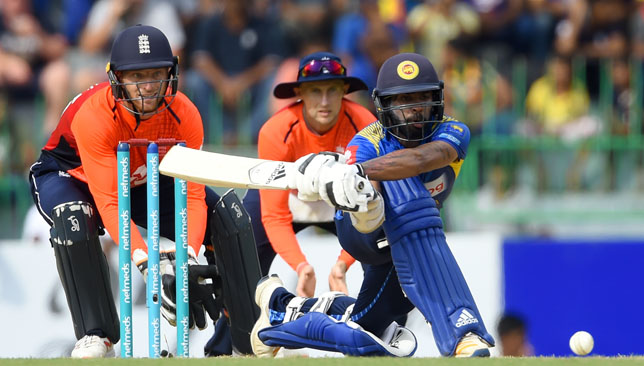
Too many cooks spoil the broth. In the fifth and final ODI of the series in Sri Lanka, it was a surplus of bowling options that ruined England‘s bowling spread as they sank to their heaviest ODI defeat in history – by 219 runs.
With the series already wrapped up, England decided to field their entire bowling line-up in the fifth match in Colombo. If anything, it should have meant enough bowling options for stand-in skipper Jos Buttler. On Tuesday, England had a stunning eight proper bowling options to chose from and by the time they approached first half of the Sri Lankan innings, it became a merry-go-round of bowlers.
In nature, herbivores use the strategy of moving in large groups so that predators can’t focus on one prey in an unsettling mirage of hoofs and horns.
It seemed Buttler couldn’t focus on one particular bunch of bowlers for either the new ball, middle overs or the death as Sri Lankan batsmen made merry; the top four scoring more than 50 each.
Only leg-spinner Adil Rashid completed his quota of 10 overs as Buttler used seven options, with Joe Root waiting in the wings.
This is only the third time in ODI history that seven England bowlers have bowled at least five overs each.
— Test Match Special (@bbctms) October 23, 2018
Sri Lanka 351/6
1 over to go...
LIVE 👉 https://t.co/gbYwUCFu9g #bbccricket #SRIvENG pic.twitter.com/XZCycmGHuU
What such a situation does is it doesn’t allow bowlers the chance to go through the normal ups and downs of an ODI spell where there is a chance to come back in the second and third spell. At the 35-over mark, the Sri Lankans were 230-2 and as the chopping and changing continued, England used six bowlers in the final 15 overs.
While the effort was to push everyone in the middle and see who emerges as the best, it looked more like throwing everything at the wall and see what sticks.
All England bowlers are top-class; many would walk into limited overs sides of other teams. But having all of them together, with the bowlers knowing maybe no one will get to complete their quota of overs and that they can’t afford a bad first spell, made it a bewildering experience for the team and viewers.
A better way would have been to split the bowling group evenly across the five-match ODI series in Sri Lanka. What this strategy did was weaken the batting considerably and the Three Lions duly sank to a record defeat.
The final match was a bit of a futile exercise for England as they needlessly altered the balance of the team. You don’t play an international match, at least limited overs matches, with seven proper batsmen and just four bowlers. Why would you do it the other way around?